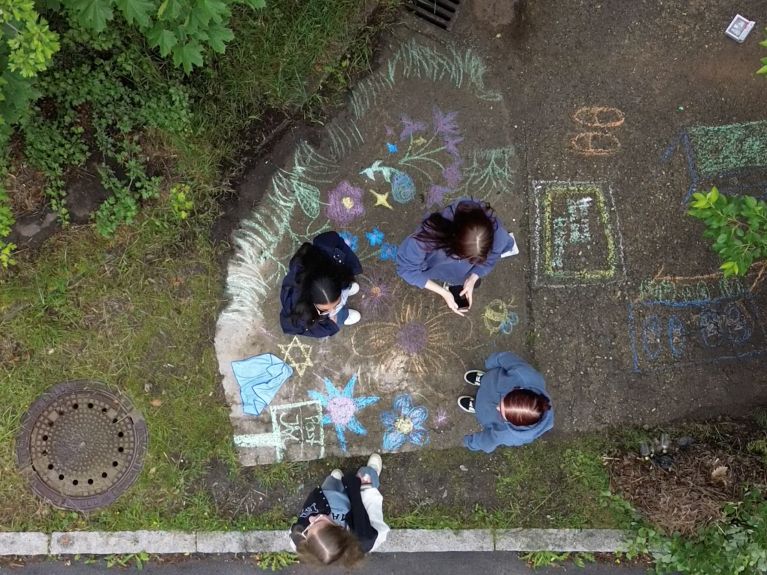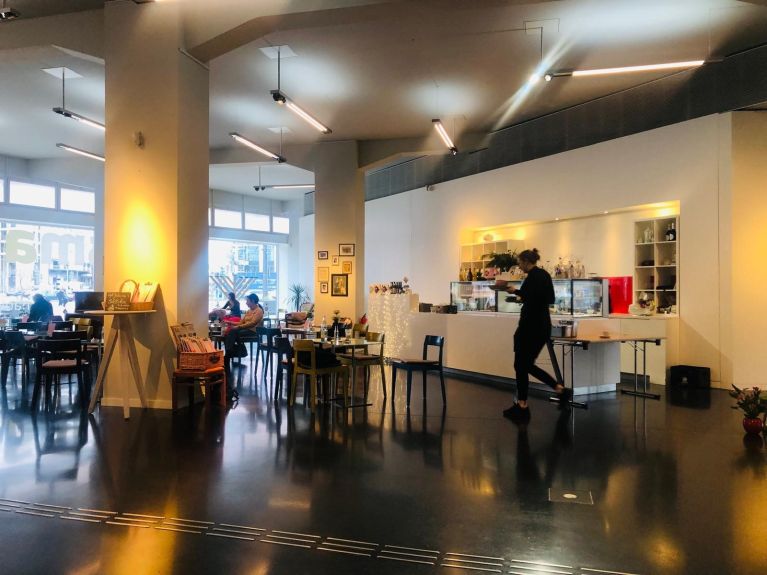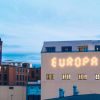“There’s more that unites us than divides us”
Chemnitz connects Nirit Sommerfeld with her family’s persecution. Her response: the artist is creating venues for social contact.

Nirit Sommerfeld is a German-Israeli singer, actress, author and restauranteur. She is Jewish, was born in Eilat in Israelin 1961, has been living in Germany for many years and recently moved to Chemnitz. She is bound to that city by her family history. She talks in an interview about what happened to her father and grandfather in Chemnitz and how, in their memory, she is now using art and social contact to counter exclusion.
Ms Sommerfeld, you moved to Chemnitz to trace your grandfather. What motivated you to do that?
When it was announced about two years ago that Chemnitz was to become Europe’s Capital of Culture, I wanted to take a closer look at the city and our family history there. I own a small plot of land in Chemnitz – the site on which my grandparents’ home previously stood. My grandfather Julius was arrested in 1939 and murdered in Sachsenhausen concentration camp in 1940. The house became a “Jewish old people’s home” from which many Jews were sent to the extermination camp. There is nothing left of the house nowadays – the site was used as a car park. I’d like to use the Capital of Culture events to create a culture centre here, a pavilion for art, culture, research, togetherness and youth activities. With a very clear message: dreadful things happened, which we need to commemorate and from which we can learn. Those sorts of things should never again be suffered by anyone, anywhere.

The pavilion doesn’t exist yet, although you have already held some events on the former Antonplatz, the site where your grandparent’s house stood. Which of them holds special memories for you?
As part of a year-long history project called “Searching for Traces”, pupils from the Agricola Gymnasium investigated the former Antonplatz and its history. My father did in fact previously go to school there before he first fled to Switzerland and then to Palestine. The pupils listened to my stories and spruced up the site. They posted their project on Instagram to generate attention beyond the city itself. We celebrated my father’s birthday there in August, he would have been 105 years old. I baked cakes and we drank coffee. I invited passers by to join us. Everyone was welcome. There may no longer be a house there, but we’re making the site come alive again.
I’d like to create a place where people can meet, look each other in the eyes and realise: there’s more that unites us than divides us.
You have also now taken over the running of the café in the Staatliches Museum für Archäologie in Chemnitz. You have renamed it as “Julius im Schocken” after your grandfather and the Jewish department store that was in the building. What are your plans there?
It’s primarily intended it to be a place where people can have something nice to eat and drink in a pleasant atmosphere. But it should also be a place for encounter. Remembrance, including of my grandfather, should be a catalyst in creating a better life in the here and now. It’s not about wallowing in the past, but remembrance is so important because we can learn from it. We have Jews, Muslims, Christians and atheists who are collaborating here in the café. I’d like to create a place where people can meet, look each other in the eyes and realise: there’s more that unites us than divides us. I’m keen to celebrate the Passover festival here this year and invite everyone who’d like to join our celebrations.

I’ll also be hosting weekly cultural evenings to mark the opening ceremony of our Capital of Culture. I’ll be reading from my own novel, inviting people to take part in discussion groups, enabling other authors to read and there will be musical performances. For me, culture is all about people congregating. And the plan is therefore to create meeting places, both in the Café Julius im Schocken and at Antonplatz.


